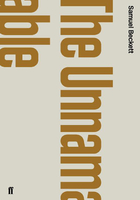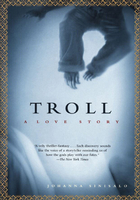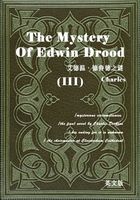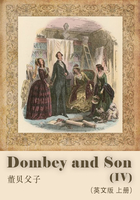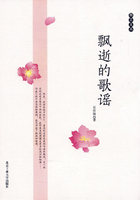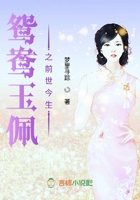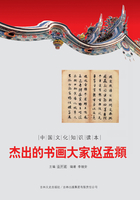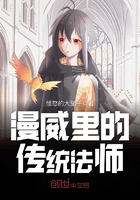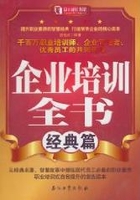A Case in a Thousand
SURGEON BOR OPERATED with the utmost success on a boy called Bray who had been brought to him suffering from tubercular glands in the neck, since when the boy showed an unfathomable tendency to sink, and did in fact begin to sink. Surgeon Bor shrugged his shoulders without rancour and called in his physician, Dr. Nye, young but most eminent.
Dr. Nye belonged to the sad men, but not to the extent of accepting, in the blank way the most of them do, this condition as natural and proper. He looked upon it as a disorder. He stood still before the window of his consulting-room, his right hand opening and closing the jigger button of his jacket, his left: hand playing with the small change in his trouser pocket. He felt the afternoon light, glistening now between showers, like a high frequency shampoo on his face. Children throughout the locality had been waiting angrily for the rain to stop, so that they might go out to play. Without warning a proposition sprang up in his mind: Myself I cannot save. He sat down on the couch, still tossed from the last patient. After a while he lay down on it. The distant furious crying of a child, the light fading and then the rain again, his heart that knocked and misfired for no reason known to the medical profession, these and a compound of minor disturbances began to exhaust his mind and senses. In the absence of the feet of some other person, he thought, the meditative life has little to recommend it. His distress was interrupted by Surgeon Bor, on the telephone.
Dr. Nye found a rightsided empyema. He stood with Surgeon Bor at the end window of the long ward and looked out. Canal, bridge, lock and bright hoarding composed the scene. Three groups had gathered, one on the bridge and one on either bank, to watch a barge pass through the lock. Detached from the far group, paying no heed to the manoeuvre, holding up an umbrella as though oblivious of the fine interval, a large woman stood looking up at the hospital.
"Mrs. Bray," said Surgeon Bor.
Sister came up to tell Surgeon Bor he was wanted.
"Tell Dr. Nye the Mother Bray saga," he said and went away.
Already the barge was working clear of the dock. The group on the bridge had crossed over to the other parapet, with the result, most pleasing to Dr. Nye, that where formerly he had seen their faces, now he enjoyed a clear view of their buttocks, male and female. The groups on the banks had passed out of sight under the bridge. Mrs. Bray's umbrella was still open, but reposing now on her hat and bosom, so that both her arms were free to dangle. Thus partially eclipsed she kept watch. Dr. Nye watched the long line of buttocks, sister watched Dr. Nye.
"She would come first thing in the morning," said sister, "and stay all day till she was put out last thing. Not saying anything, only watching the boy. The same when the doctor came, she wouldn't say anything, only watch his face. Then the other patients began to complain and the nurses said she was upsetting the ward. So we had to tell her she could only have an hour in the morning and another in the evening. So there she stands now the best part of the day, watching the window and waiting for it to be time to come up."
Dr. Nye did not feel there was anything he wanted particularly to say in reply to all this.
"God knows she was quiet enough," said sister, "and no trouble, only she got on the nurses' nerves some way."
Dr. Nye mumbled something smart about her no doubt being widowed and he her only child.
"Well, then, she's married," said sister, "and has a family down in Tuam."
"Then it is as I feared," said Dr. Nye. "The woman is my old nurse."
"Oh, doctor," said sister, "what a coincident!"
The barge had passed on its way, the fine interval was drawing to an end, the buttocks had dispersed, only Mrs. Bray had suffered no change. The handle of the umbrella, carved in bog-oak to represent a bird, rose and fell. Dr. Nye planted himself before her. Sister called out to the nurses to come and look. "It's his old nanny," she cried.
Mrs. Bray, when she learned who he was and who he had been, lowered, as though in deference, her umbrella. He was troubled to find that of the woman whom as baby and small boy he had adored, nothing remained but the strawberry mottle of the nose and the breath smelling heavily of clove and peppermint. He took her arm and they walked up and down, to and fro between the bridge and her station. The conversation turned first on her son. "He has turned the corner," said Dr. Nye, but did not make it clear in what direction. Then it passed to the good old days. "Yes," said Mrs. Bray, "you were always in a great hurry to grow up so's you could marry me," but did not disclose the trauma at the root of this attachment. On the bridge they parted, Dr. Nye to visit an old schoolfellow professionally, Mrs. Bray to move over to the hospital steps, for it was nearly her time.
A nurse let a loud giggle. "Did you see him kiss her?" she said. "Why wouldn't he kiss her?" said sister, "and she his old nanny."
The boy developed an empyema on the left side, so now he had two, and they put a screen round his bed. One good result of this was that the mother could be with him all day. She neither spoke to him nor touched him; it was not even certain that she saw him, though she kept her face turned steadfastly in his direction. She made no attempt to draw Dr. Nye when he came, but was content to watch his face, and this not so much in order to learn what he was thinking as in the hope of recognising him as the creature she had once cared. There was always something he wanted to ask her with reference to the good old days, but he felt it was neither the time nor the place, and this feeling grew steadily stronger. One day, when he had made an end of his examination, instead of departing without comment as he always had done, he sat down on the edge of the bed. The point had been reached when he must decide whether to operate at once or hold his hand a little longer. It was a decision that lay outside the scope of his science, because from the strictly pathological point of view there was as much to be urged on the one side as there was on the other. Nevertheless it had to be made, and at once, and by him. He took hold of the boy's wrist, stretched himself all along the edge of the bed and entered the kind of therapeutic trance that he reserved for such happily rare dilemmas.
Mrs. Bray, noting the expression, at once aghast and rapt, that overcame his face, was moved in a number of ways: to trouble, at such dissolution of feature; to gratification that at last she saw him as she could remember him; to shame, as the memory grew defined; to embarrassment, as though she were intruding on a privacy or a face asleep. She forced herself to look at her son instead. Then, very sensibly, she closed her eyes altogether.
Sister peeped round the corner of the screen and surveyed the tableau. As soon as it began to show signs of coming to life she advanced with great heartiness, craving loudly to be of service. She received no encouragement, not the slightest. She went, having seen what she had seen.
Little by little Dr. Nye reintegrated his pathological outlook. He sat up on the bed, without releasing the boy's wrist however. He stood up and laid the hand gently on the breastbone. Exasperated by the inaptness of this arrangement he looked sharply at Mrs. Bray, whose mild and baffled gaze, as though she had seen nothing, had resumed operations. No doubt it was his duty to make known to her the decision that had been reached, but he really could not bear another moment of her presence. If only he had a box of peppermint creams to leave with her. Mrs. Bray again closed her eyes as she felt the imposition too pregnant for words of his hand on the crown of her hat (which nothing could ever induce her to leave off), the rapid flutter of his fingers down her cheek, the ineffable chuck to her dewlap. Feeling nothing further, she opened them. She was alone. She turned her face towards her son.
Surgeon Bor operated, the boy's lung collapsed and he died. Mrs. Bray suddenly found her tongue and thanked Dr. Nye for all he had done. Dr. Nye tried hard to recapture the sensation which as a medical student he had experienced when a baby died under his hand, just as he had it nicely spitted for a lumbar puncture. He succeeded up to a point. The blush gathered together like a wave in his entrails, sweeping aloft and breaking in his heart-this much at least he was permitted to re-enact. He realised that she had quite done thanking him, also that he could not hope to reproduce that profound blush in her honour, yet somehow he did not seem able to get away from her. So they remained together for a time in silence, making great efforts to speak their minds. Then they gave it up and parted.
Dr. Nye took a short holiday at the seaside, towards the end of which he received a letter from Surgeon Bor, with a postscript to the effect that Mrs. Bray was back at her old games. Dr. Nye had supposed her back in Tuam. He took the first train up to town and went straight to the hospital.
"What do you mean," he said to Surgeon Bor, "back at her old games?"
Surgeon Bor turned to sister.
"Has she come on duty yet?" he said.
Sister looked at her watch.
"She should be due any minute now," she said.
They went up to the long ward and stood at the end window. There was no sign of Mrs. Bray. But before long she came into view, carrying the umbrella and a shooting-stick. This she opened and plunged into the earth of the towing-path. Then she sat down and cocked up her face at the hospital.
"Ever since the funeral," said sister.
Dr. Nye set out on his rounds. At one o'clock the news came through that Mrs. Bray, having eaten an orange, was walking up and down between the bridge and the stick; a little later, that she was again in position; finally, about lighting-up time, that she was making ready to go. Dr. Nye dropped what he was doing, happily nothing very important, and hastened out to intercept her. On the bridge they met face to face. They moved into a recess in the parapet out of the noise, they leaned out over the water.
"There's something I've been wanting to ask you," he said, looking at the water where it flowed out of the shadow of the bridge.
She replied, also looking down at the water:
"I wonder would that be the same thing I've been wanting to tell you ever since that time you stretched out on his bed."
There was a silence, she waiting for him to ask, he for her to tell.
"Can't you go on?" he said.
Thereupon she related a matter connected with his earliest years, so trivial and intimate that it need not be enlarged on here, but from the elucidation of which Dr. Nye, that sad man, expected great things.
"Thank you very much," he said, "that was what I was wondering."
They watched the water flowing out of the shadow a little longer, then she said she must be going. Dr. Nye took a box out of his pocket.
"I brought you a few peppermint creams," he said.
So they parted, Mrs. Bray to go and pack up her things and the dead boy's things, Dr. Nye to carry out Wasserman's test on an old schoolfellow.

